![]() Vrailexia è tra i primi 100 progetti al mondo selezionati da IRCAI. Leggi di più
Vrailexia è tra i primi 100 progetti al mondo selezionati da IRCAI. Leggi di più
BE-SPECIAL: Supporting Platform for students with dyslExia based on artifiCial Intelligence Adaptive Learning
The second intellectual output consists in the development and validation of a digital solution based on artificial intelligence able to suggest the most appropriate supporting methodologies for dyslexic students based on the student-specific issues.
The implementation of BESPECIAL will require a deep knowledge of the actual methodologies used in the universities to support students with dyslexia during teaching and studying in order to evaluate how BESPECIAL can enhance the inclusion of dyslexic students. In addition, a further analysis will be used to understand the different approach based on different cultures and different level of pathology severity. This preliminary analysis represents fundamental aspects of O2.
The main potential beneficiaries of BESPECIAL are obviously the students that will have an innovative e-learning tool at their disposal, to study and find less difficulties in approaching the university. Teaching staff will also benefit, since they will have a useful supportive tool to teach a standardized methodology that foster to raise up students’ potentiality. Ad hoc training program designed in ToT and testes in C1 will support the recommendation to increase academic staff awareness of dyslexic students’ needs. In addition, the offices addressed to the inclusion of dyslexic students will have a further tool to eliminate differences among students.
Actually, several efforts have already been made to help students with dyslexia, offering adaptive e-learning methods. However, these efforts are totally addressed to children of primary school; no online tool based on AI have been proposed in the university, nevertheless the inclusion of students with dyslexia in higher education is an important issue to solve. Thus, the two main innovative factors are the intrinsic innovation of a e-learning platform for dyslexic student and the use of artificial intelligence as the core of the BESPECIAL architecture, as first example of this technology application for dyslexics. The usage of AI will provide an adaptive interface that will support students during universities and with a substantially higher age than the one considered until now in similar studies. In addition, tools for education are often the same for all students without considering the different and individual typologies of learning disabilities, i.e. phonological, surface and rapid automatic naming dyslexia. Conversely, our proposal will allow to offer custom-made learning methodology taking advantages from the intrinsic concept of AI.
As reported in literature, students with dyslexia often experience problems with information processing, writing and note-taking when attending a university course. A lack of confidence leads to a decrement of their performance. The implementation and dissemination of BESPECIAL platform can be effective in creating more equal opportunities for dyslexic students to participate in HE. In fact, such tool will guarantee an improved accessibility to lessons and a more appropriate management of the information and notes during classes. In addition, it is plausible that students will positively evaluate teaching approached that go beyond traditional formats since they can access study materials in multiple formats based on their needs. BESPECIAL could also permit to encourage and motivate students by specific tests implemented in 01. As a final impact, we strongly believe that the use of BESPECIAL will allow enhance the social and cultural inclusion of dyslexic student with a change in perception and strengthen their motivation with a positive impact on their academic and job career.
BESPECIAL is characterized by scalability and transferability that will permit to spread such approach to national and international universities with specific modifications due to different languages. The implemented algorithms for AI will be written to permit the adaptation to different languages and different teaching areas. In addition, it can be useful to underline that the BESPECIAL will be created for students with dyslexia; however it can be easily scaled, in further studies, to be used by students with dyscalculia and dysgraphia. Finally, such methodological approach to solve problems that students with dyslexia encounter during university can be transferred to training and working environment.








